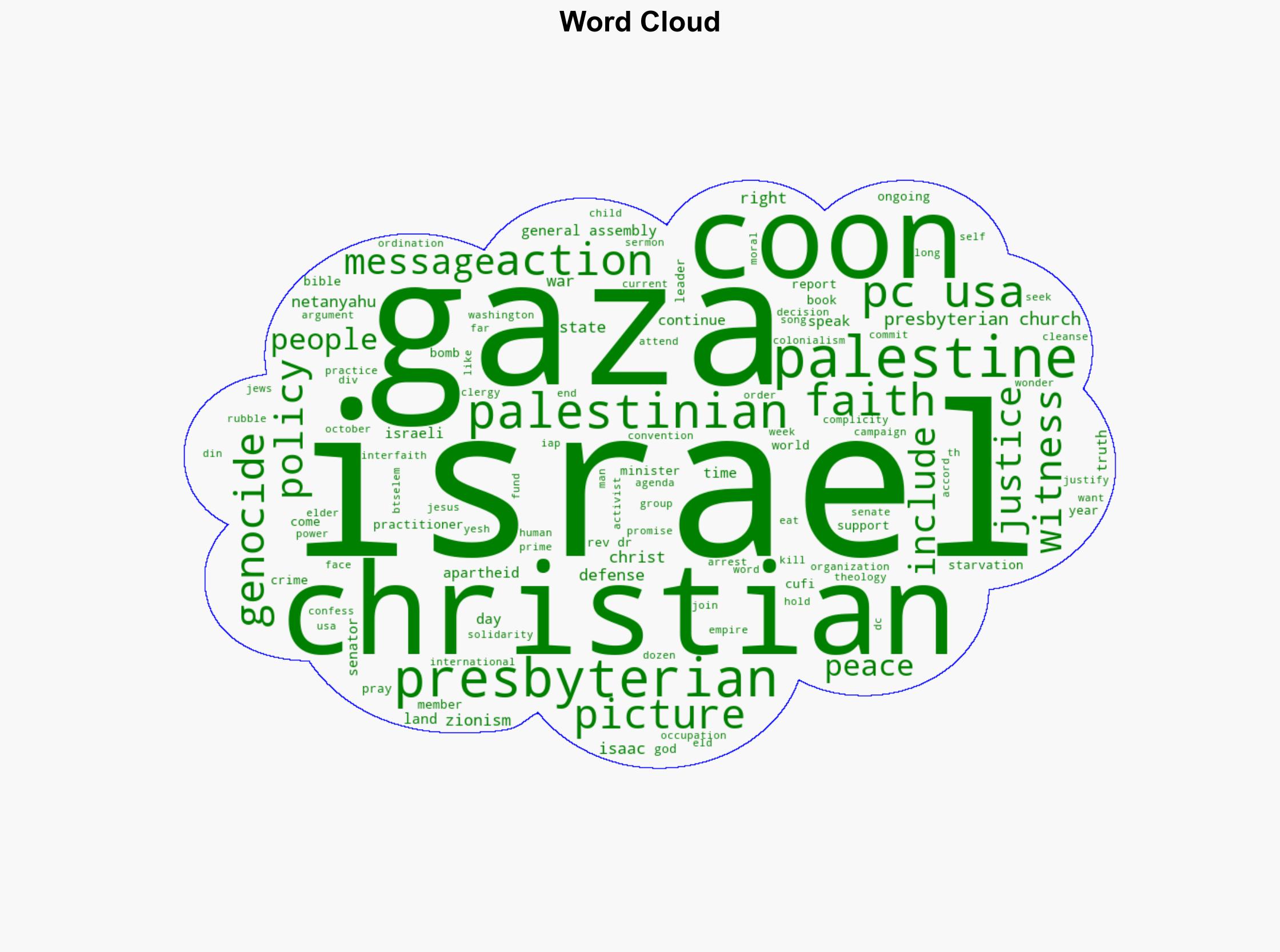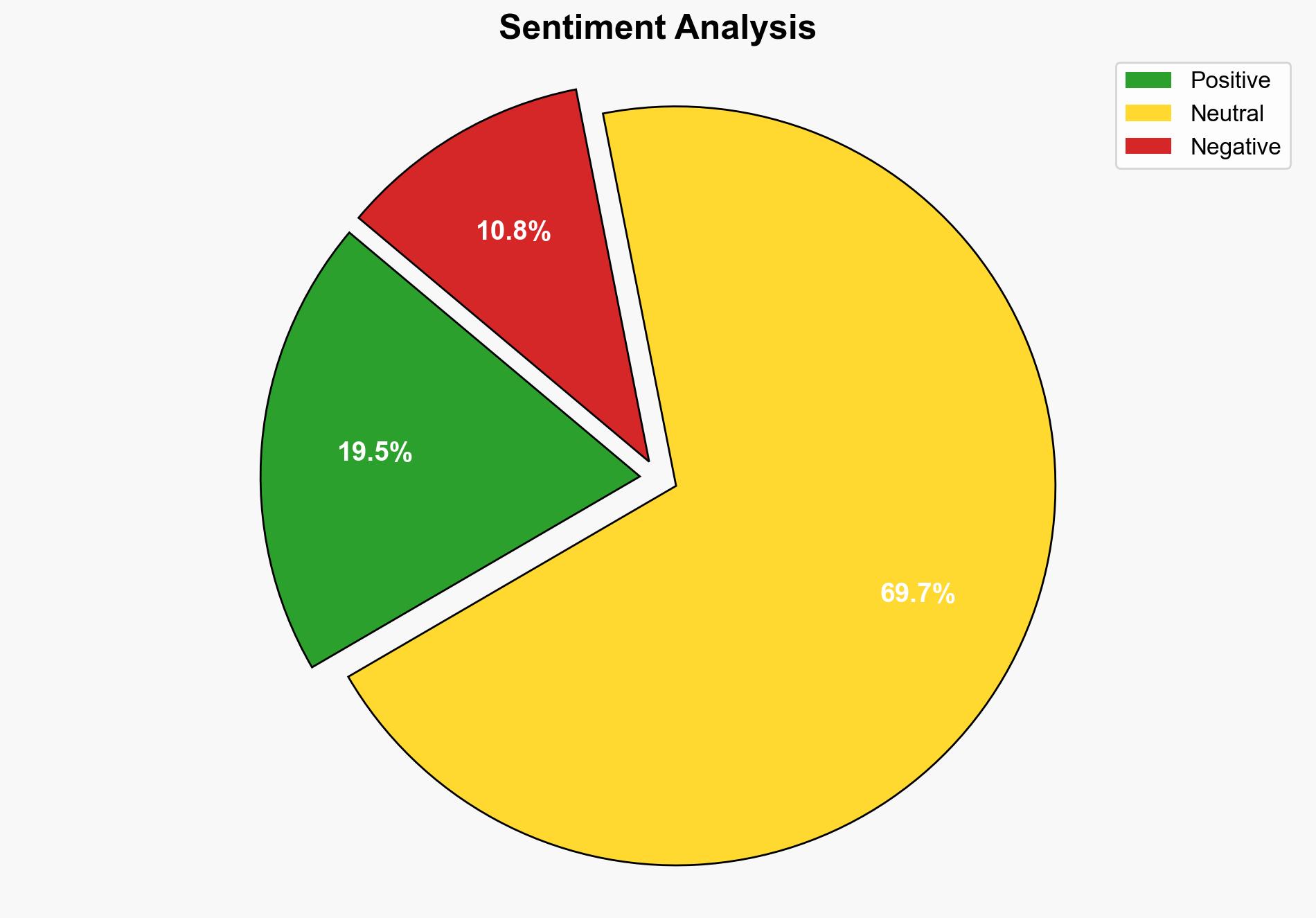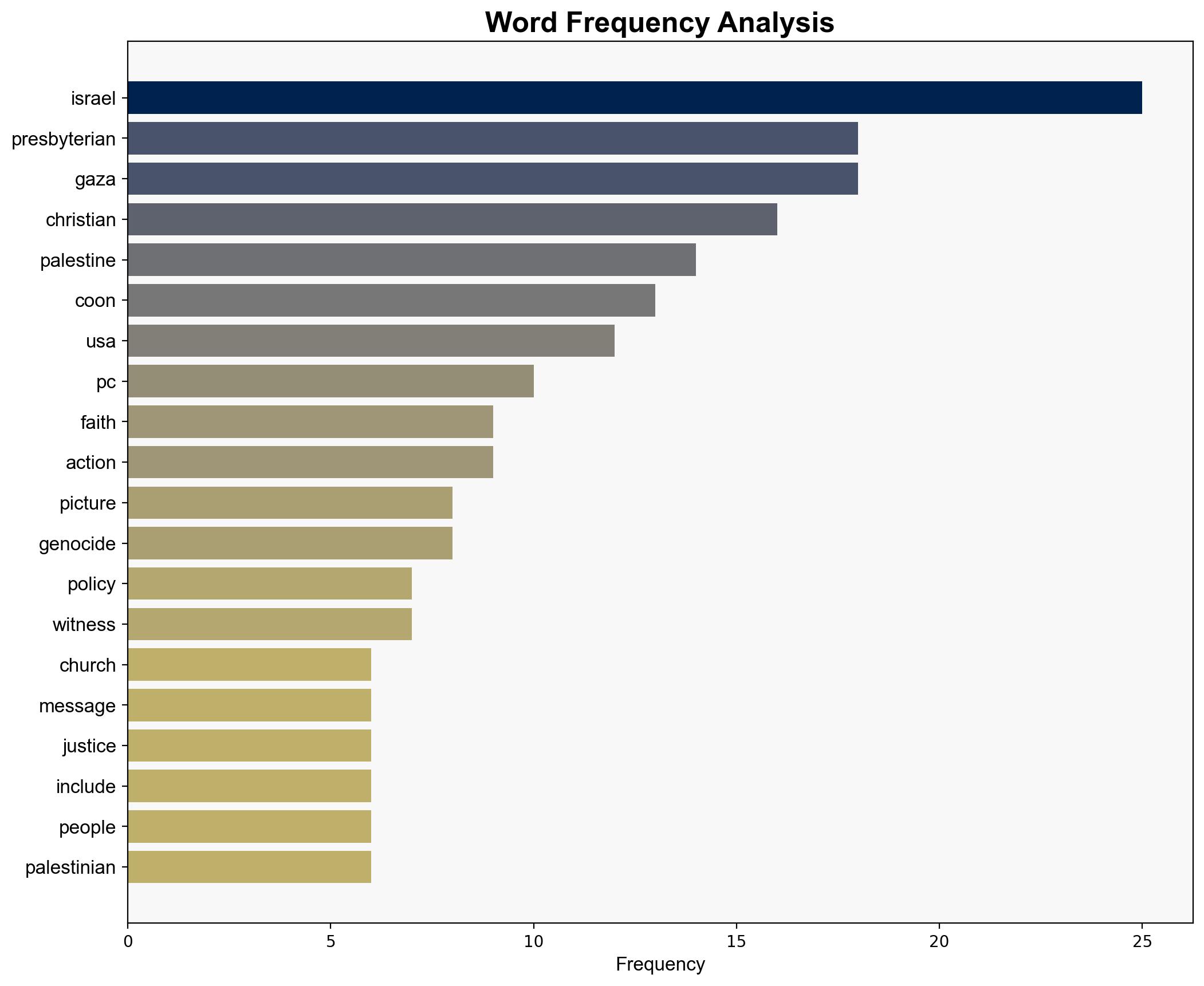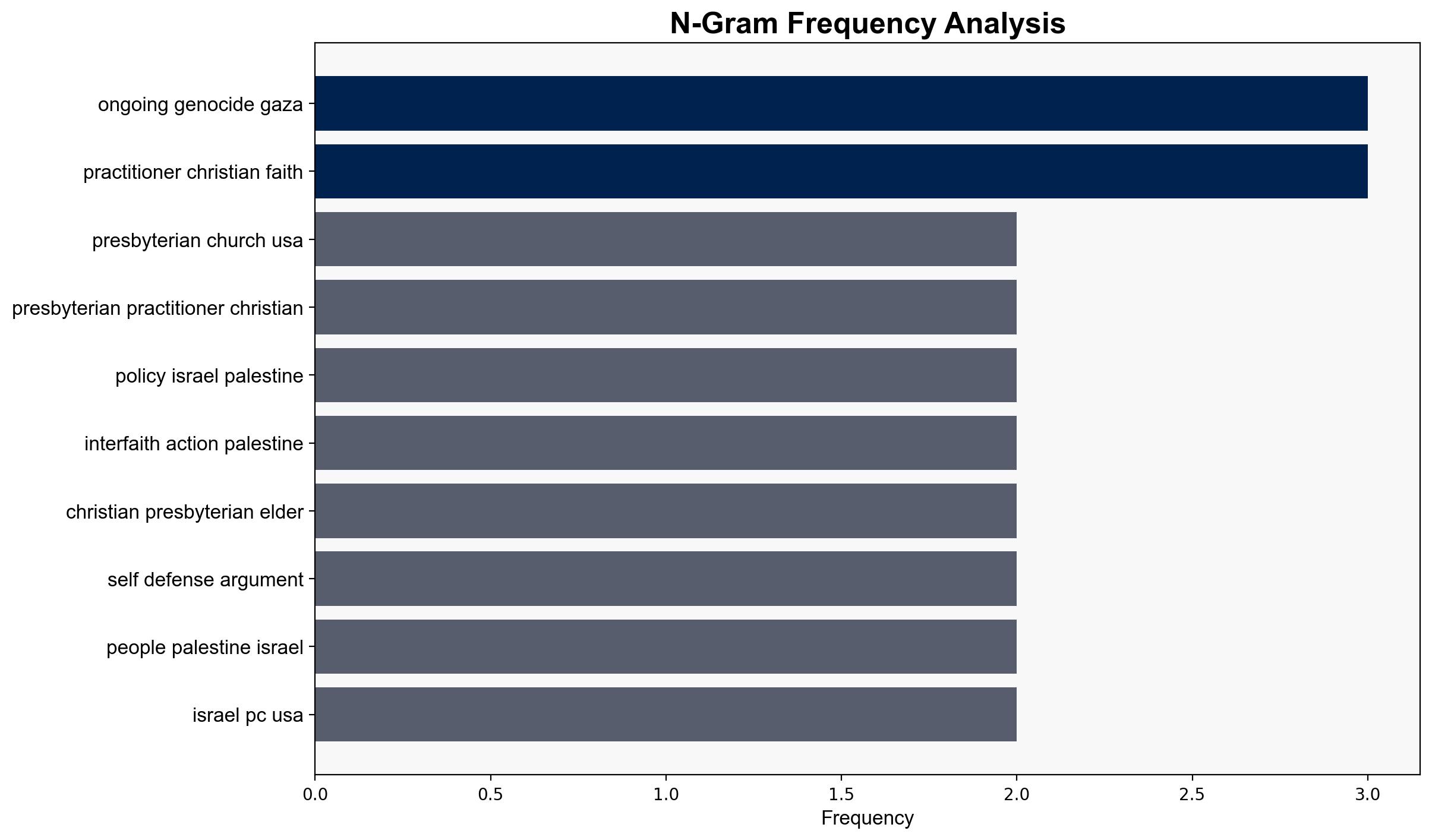Seeking a Presbyterian witness amid the genocide in Gaza – Mondoweiss
Published on: 2025-08-10
Intelligence Report: Seeking a Presbyterian witness amid the genocide in Gaza – Mondoweiss
1. BLUF (Bottom Line Up Front)
The analysis suggests two main hypotheses regarding the Presbyterian Church USA’s stance on the Gaza situation. The more supported hypothesis is that the Church’s actions are part of a broader interfaith and political movement advocating for Palestinian rights, countering pro-Israel narratives. Confidence in this assessment is moderate due to potential biases and incomplete data. Recommended action includes monitoring interfaith advocacy trends and assessing their influence on U.S. foreign policy.
2. Competing Hypotheses
Hypothesis 1: The Presbyterian Church USA is primarily motivated by religious and ethical considerations to oppose perceived injustices in Gaza, aligning with broader humanitarian principles.
Hypothesis 2: The Church’s actions are strategically aligned with a political agenda aimed at influencing U.S. policy on Israel and Palestine, possibly in collaboration with other advocacy groups.
3. Key Assumptions and Red Flags
– **Assumptions:** Hypothesis 1 assumes that religious and ethical motivations are the primary drivers, while Hypothesis 2 assumes a strategic political alignment.
– **Red Flags:** Potential cognitive biases include confirmation bias in interpreting religious motivations and political bias in assessing advocacy actions. The lack of direct statements from Church leadership on strategic objectives is a notable gap.
4. Implications and Strategic Risks
The Church’s actions could influence public opinion and political discourse in the U.S., potentially affecting foreign aid and diplomatic relations with Israel. Escalation scenarios include increased polarization within religious communities and potential backlash from pro-Israel groups. Economic and geopolitical dimensions involve potential shifts in U.S. foreign policy priorities.
5. Recommendations and Outlook
- Monitor interfaith advocacy activities and their impact on public and political sentiment in the U.S.
- Engage with religious and advocacy groups to understand their objectives and strategies.
- Scenario-based projections:
- Best Case: Constructive dialogue leads to balanced U.S. policy on Israel-Palestine.
- Worst Case: Increased domestic polarization and international diplomatic tensions.
- Most Likely: Continued advocacy with moderate influence on policy debates.
6. Key Individuals and Entities
– Benjamin Netanyahu
– Chris Coons
– Interfaith Action for Palestine
– Christians United for Israel (CUFI)
7. Thematic Tags
national security threats, geopolitical dynamics, interfaith advocacy, U.S. foreign policy




